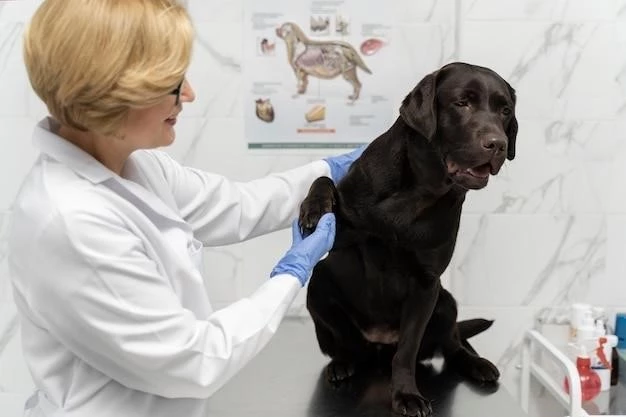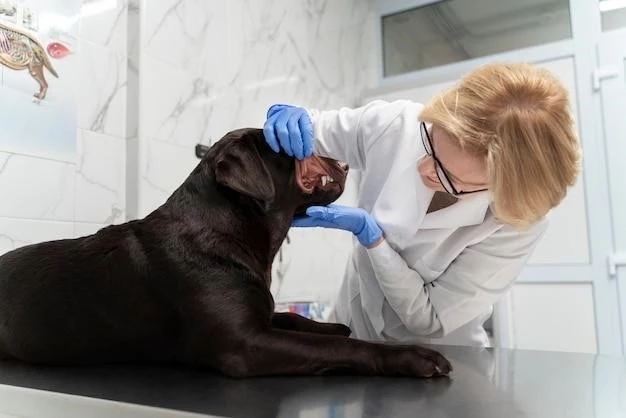Disease — Canine Distemper
Canine distemper is a serious virus that affects dogs worldwide. Understanding this infection is crucial for every pet owner. Learn about the symptoms‚ diagnosis‚ treatment‚ vaccination‚ prevention‚ and ways to boost your dog’s immune system.
Understanding Canine Distemper

Canine distemper is a highly contagious viral disease that affects dogs. It attacks various systems in the body‚ including the respiratory‚ gastrointestinal‚ and nervous systems‚ making it a severe and potentially fatal illness.
The virus is spread through airborne exposure or direct contact with an infected animal’s bodily fluids. Puppies and unvaccinated dogs are particularly at risk. Understanding the symptoms of distemper is crucial as early detection can improve treatment outcomes.
Being aware of the risk factors‚ such as exposure to wildlife or other infected dogs‚ can help prevent the spread of the virus. Regular visits to the veterinary clinic for check-ups and vaccinations are essential in protecting your canine companion from this devastating disease.
It’s important to note that there is no specific treatment for distemper‚ so prevention through vaccination is key. By understanding the nature of this virus and taking proactive steps to safeguard your dog’s health‚ you can help prevent the spread of canine distemper and ensure the well-being of your furry friend.
Symptoms of Canine Distemper
Recognizing the symptoms of canine distemper is essential for early intervention and treatment. Watch out for signs such as fever‚ nasal discharge‚ coughing‚ lethargy‚ loss of appetite‚ and vomiting. As the disease progresses‚ more severe symptoms may appear‚ including diarrhea‚ seizures‚ and neurological issues.
It’s critical to consult a veterinary professional if you notice any of these symptoms in your dog‚ especially if they are unvaccinated or have been exposed to potentially infected animals. Prompt diagnosis and treatment can help alleviate your pet’s discomfort and improve their chances of recovery.
Keep in mind that distemper can mimic other diseases‚ so accurate testing by a veterinarian is crucial for an appropriate diagnosis. Timely intervention is key to managing the disease and preventing further complications. Remember‚ early detection can make a significant difference in the outcome of your dog’s health.
Stay vigilant and proactive in monitoring your dog’s health‚ and seek immediate veterinary attention if you suspect they may be showing symptoms of distemper. By understanding the signs of this disease and acting swiftly‚ you can give your canine companion the best possible chance for a full recovery.
Diagnosing Canine Distemper
Diagnosing canine distemper requires a thorough evaluation by a veterinary professional. Your vet may perform various tests‚ including blood work‚ urinalysis‚ and specific antibody tests to detect the presence of the distemper virus. Additionally‚ a physical exam and observation of symptoms play a crucial role in confirming the diagnosis.
It’s important to provide your veterinarian with a detailed history of your dog’s health and any recent interactions with other animals. This information can aid in the diagnostic process and help determine the best course of action for treatment.
In cases where distemper is suspected but not definitively diagnosed‚ further testing or monitoring may be necessary. Your vet may recommend additional imaging studies or consultations with specialists to ensure an accurate assessment of your dog’s condition.
Remember that early detection and diagnosis of distemper are key to initiating appropriate treatment and preventing the spread of the virus to other animals. Trust the expertise of your veterinary team to guide you through the diagnostic process and provide the best possible care for your furry companion.
Treatment for Canine Distemper
Unfortunately‚ there is no specific cure for canine distemper‚ and treatment focuses on alleviating symptoms and providing supportive care. Your veterinarian may recommend hospitalization to monitor your dog’s condition closely and administer medications to address fever‚ dehydration‚ and secondary infections.
Symptomatic treatment such as fluids‚ antibiotics‚ and anti-seizure medications may be prescribed based on your dog’s individual needs. Nutritional support is essential to maintain your pet’s strength and aid in the recovery process.
While there is no guarantee of a full recovery from distemper‚ early intervention and diligent care can improve your dog’s chances of survival. It’s essential to follow your vet’s recommendations‚ keep your dog comfortable‚ and provide a quiet and stress-free environment for recuperation.
Regular follow-up appointments with your veterinarian are crucial to assess your dog’s progress and adjust the treatment plan as needed. Stay vigilant for any changes in symptoms and communicate openly with your veterinary team to ensure the best possible care for your canine companion.
Vaccination and Prevention
Vaccination is the most effective way to prevent canine distemper. Puppies should receive a series of vaccinations starting at 6-8 weeks of age‚ with booster shots given periodically throughout their lives. Adult dogs should also stay up-to-date on vaccinations to maintain immunity.
Consult your veterinarian to establish a vaccination schedule tailored to your dog’s needs and lifestyle. Avoid exposing your dog to unknown or unvaccinated animals‚ especially in high-risk areas where the distemper virus may be present.
Preventive measures such as regular veterinary check-ups‚ practicing good hygiene‚ and providing a balanced diet can also support your dog’s overall health and immune system. Keep your pet’s living environment clean and free of potential hazards to minimize the risk of exposure to infectious agents.
By prioritizing vaccination and following preventative guidelines‚ you can significantly reduce the likelihood of your dog contracting distemper. Remember‚ prevention is always better than cure when it comes to safeguarding your furry friend’s well-being.
Boosting the Immune System
Supporting your dog’s immune system is essential in helping them fight off infections like distemper. Provide your pet with a balanced diet rich in nutrients‚ antioxidants‚ and essential vitamins to promote overall health and immunity.
Regular exercise is also crucial for maintaining your dog’s physical fitness and strengthening their immune response. Engage in activities that keep your pet active and stimulated‚ contributing to a robust and healthy immune system.
Avoid stressors that can weaken your dog’s immune defenses. Create a safe and comfortable environment‚ provide mental stimulation‚ and ensure your canine companion receives plenty of rest to recharge and recover.
Consult your veterinarian about supplements or immune-boosting products that may benefit your dog’s health. Additionally‚ stay proactive with routine wellness exams to detect any underlying issues early and address them promptly to support your dog’s immune function.
By focusing on preventive care‚ nutrition‚ exercise‚ and stress management‚ you can enhance your dog’s immune system and help them stay resilient against infections like distemper. Prioritize your pet’s well-being by nurturing their overall health and immunity for a happy and healthy life.
